Our Verdict
A very, er, insistent cooling array certainly wants you to know the Stealth GS66 is doing something. And what it does, it does pretty well, but the pricing and the strange spec choice, combine with the gaming volume to make it a tough machine to love or to recommend.
For
- RTX 3070 Ti matches previous RTX 3080 perf
- 12th Gen CPU is a computational beast
- Chassis is relatively thin...
Against
- ...but makes up for it by being LOUD
- 4K 60Hz has no place in a gaming laptop
- Price is punitive
PC Gamer's got your back
There is a huge difference between the MSI GS66 Stealth gaming laptop I reviewed just over a year ago and the one which sits in front of me now. Not in the looks, granted—it's the same slimline chassis MSI has been using for its GS66 machines for generations—but the performance is very different thanks to the core components picked for this 12th Gen build.
The 2021 version of this machine picked the Nvidia RTX 3080 GPU, and paired it with a 10th Gen Core i7 10870H processor. Compared with the Core i9 12900H MSI has dropped into this laptop, it's just a silicon dunce sat in the corner of the class right about now. It's also interesting that the more modern Nvidia GeForce RTX 3070 Ti used in the new GS66 Stealth compares very favourably with last year's model, too.
But that doesn't mean I find myself falling for this slab of black tech in front of me.
It's a gaming laptop in 2022 which inevitably means a few things. For one, it means there's barely been the slightest change in the chassis or cooling on offer; two, there are going to be some strange specs choices; and three, you're going to need a good pair of noise cancelling headphones because it's going to kick out an ungodly fan-based roar.
CPU: Intel Core i9 12900H
Cores: 14 (6P | 8E)
Threads: 20
Memory: 32GB (2x 16GB) DDR5-4800
GPU: Nvidia RTX 3070 Ti
TDP: 95W
Display: 15.6-inch
Native res: 3840 x 2160
Refresh rate: 60 Hz
Storage: 2TB PCIe 4.0 SSD
Price: ~$3,000 | £3,100
So, those specs. For the best part of three grand you're getting a 14-core Alder Lake CPU, matching six Performance cores with eight Efficient cores, for a total of 20 threads of overall multi-threaded grunt. The 12th Gen Intel platform means DDR5 memory, and you get 32GB of 4800MHz RAM inside it.
Alongside all that is the RTX 3070 Ti, a refreshed Ampere GPU with 5632 CUDA cores and 8GB GDDR6 memory. The GPU inside the MSI is pegged at 105W, which is a little higher than the 95W TDP of the RTX 3080 it previously used.
So far, so good. Where I'm struggling is in the way that MSI has slapped a 4K screen to it, running at a measly 60Hz. I was excited looking at the online specs for the latest GS66 12UGS, which promised a 120Hz UHD panel, so was rather disappointed to boot into a sluggish 60Hz Windows desktop.
Maybe I'm being a bit of an entitled Timmy about this, but no gaming laptop in 2022 should be saddled with a 60Hz refresh screen
I've got a UK SKU, which may or may not appear Stateside, so you may get lucky and find a 120Hz screen in your region, but the price will be around the same mark I would expect.
Maybe I'm being a bit of an entitled Timmy about this, but no gaming laptop in 2022 should be saddled with a 60Hz refresh screen. Admittedly, this RTX 3070 Ti machine struggles to hit 60 fps—again suggesting this might not be the smartest spec—but even just on the desktop shifting an explorer window around is a blurry, ghosted mess.
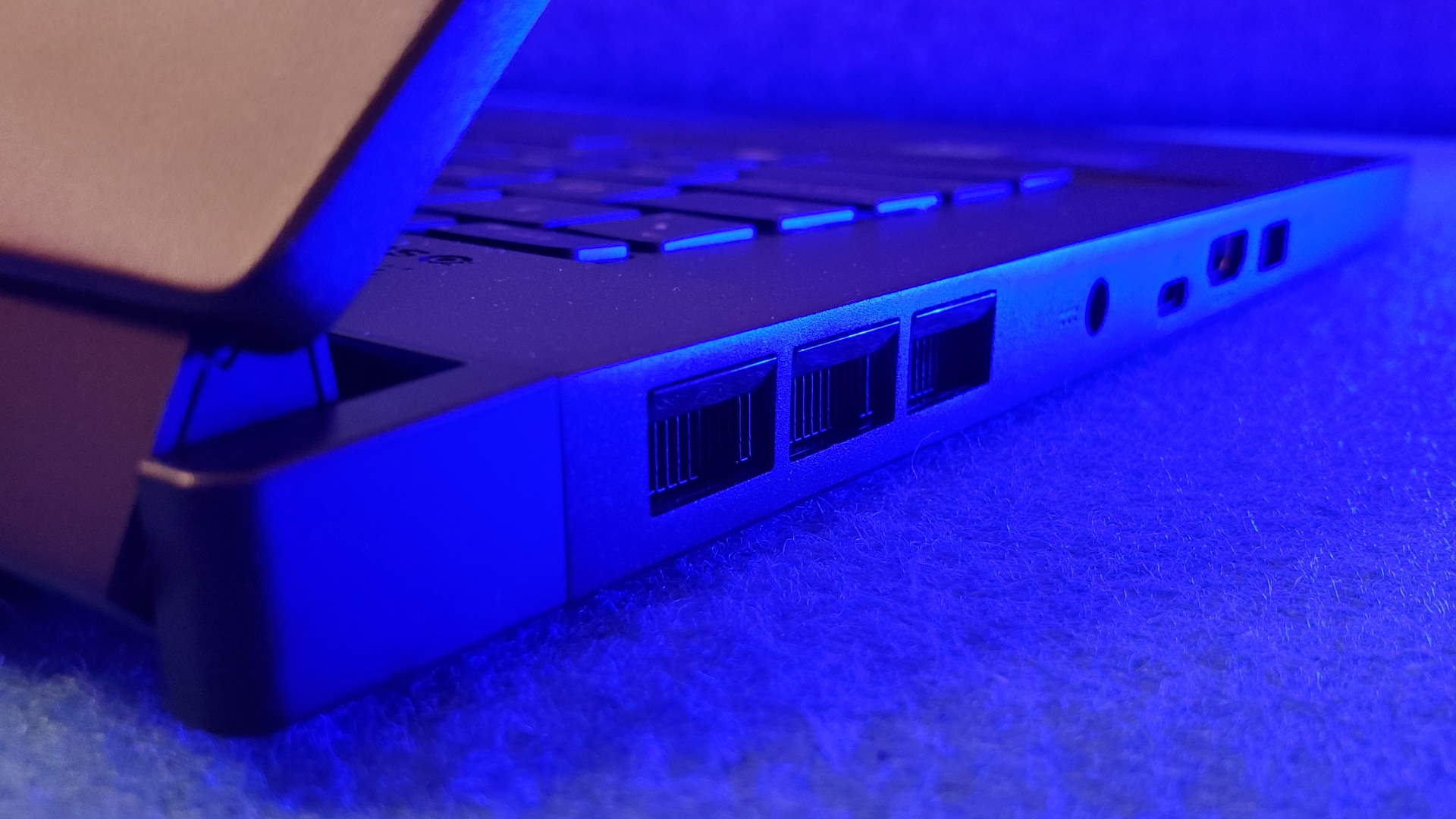

The contrast is okay, and the white saturation is decent, but the gradient banding is evident, and the black levels are pretty sub-standard, too. I guess what I'm saying is: I don't like the panel.
But I'm impressed with the way the 105W RTX 3070 Ti performs. That, at least, feels like a better match for the chassis than the 95W RTX 3080 did before. It's regularly posting higher frame rates than last year's laptop, though inevitably lower than the 150W RTX 3070 Ti Asus jammed into the mighty ROG Strix Scar 17.
1080p gaming performance
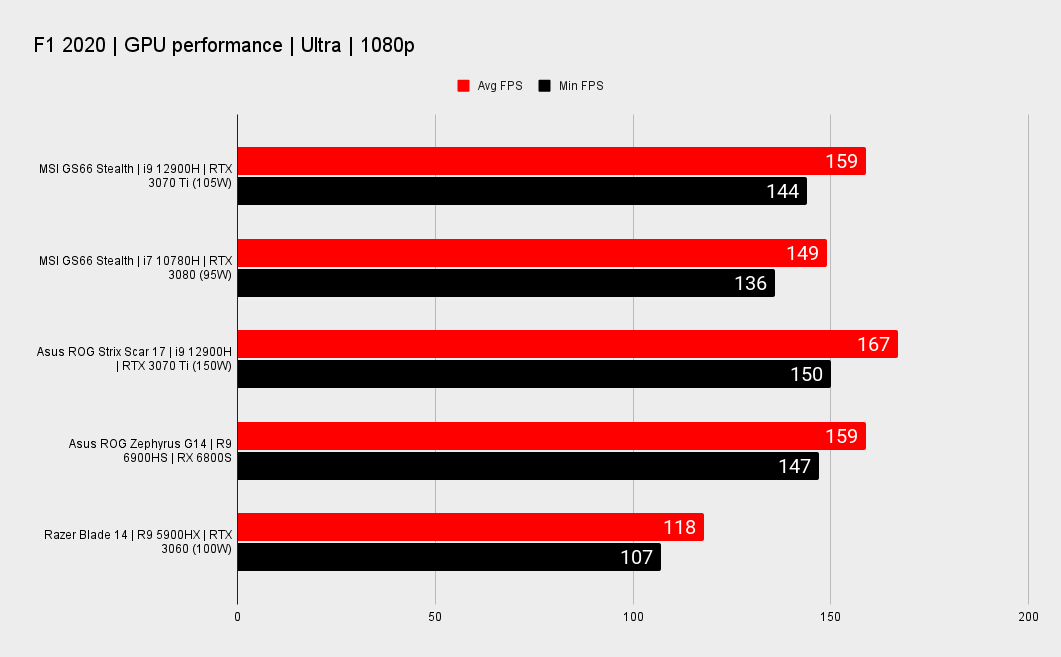
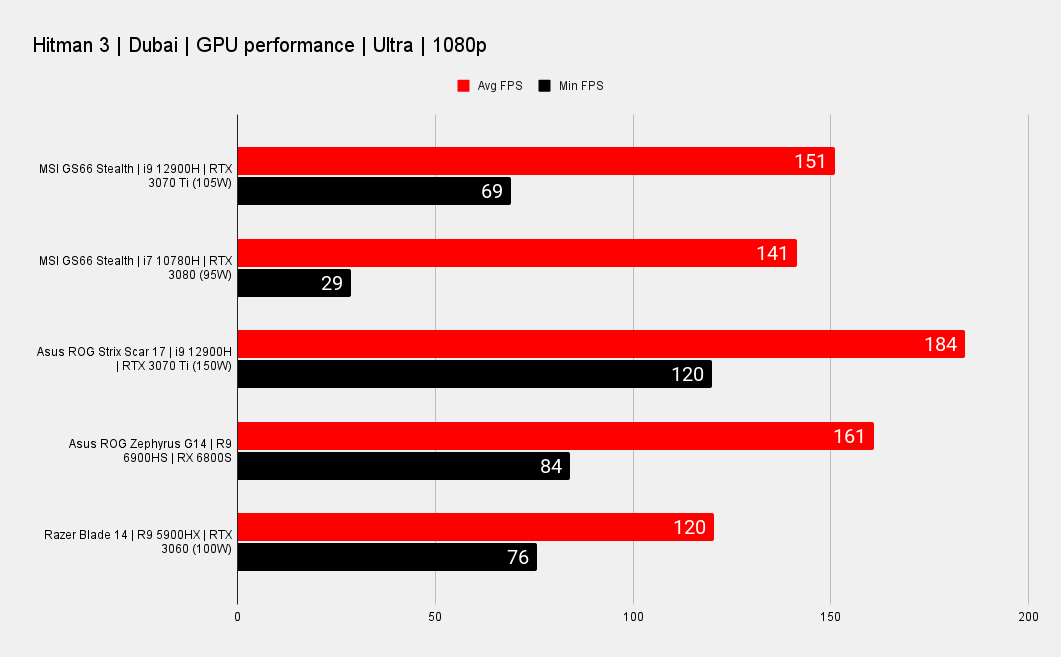
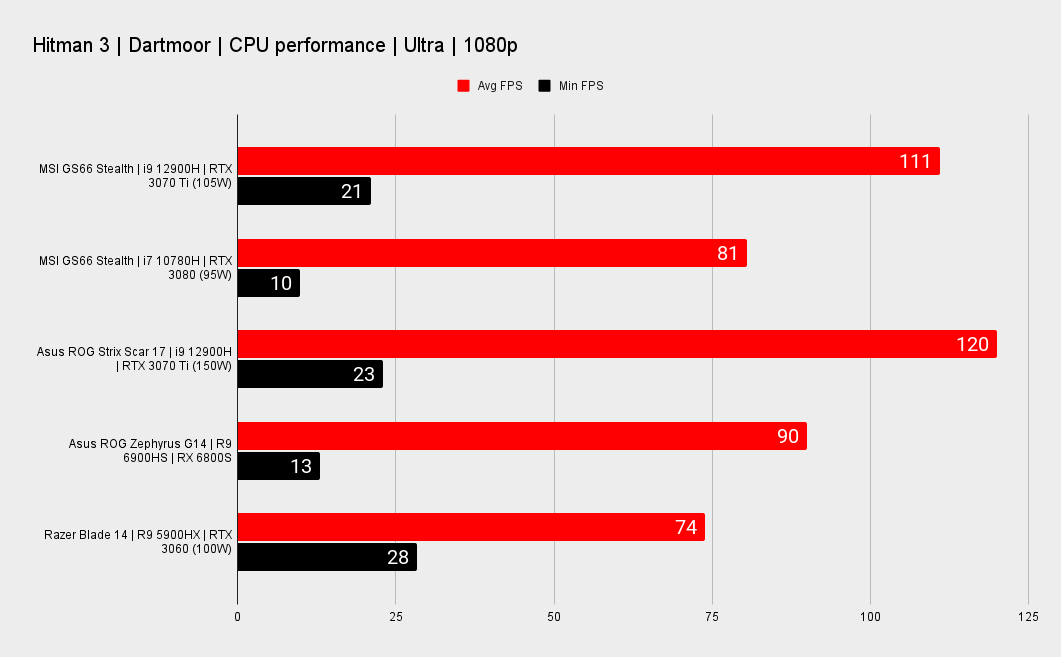
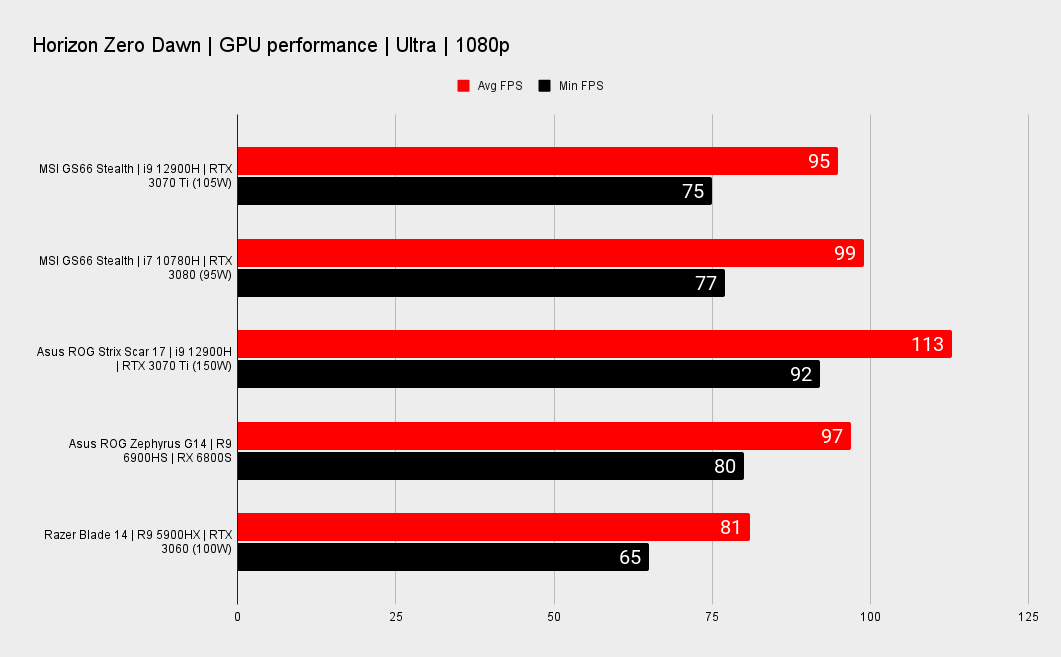
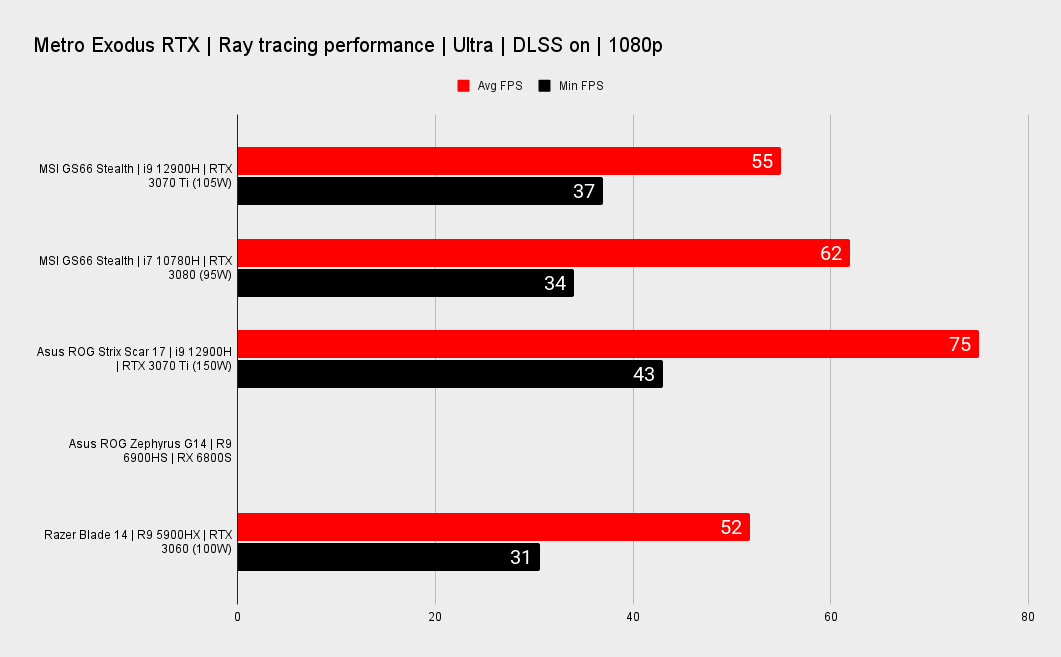
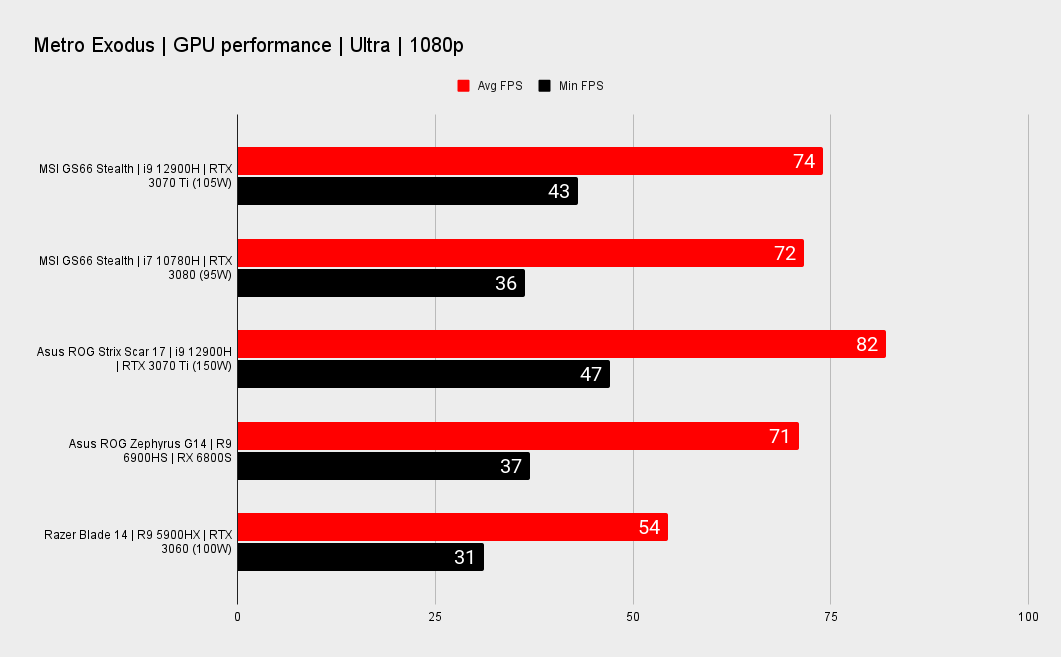
System performance
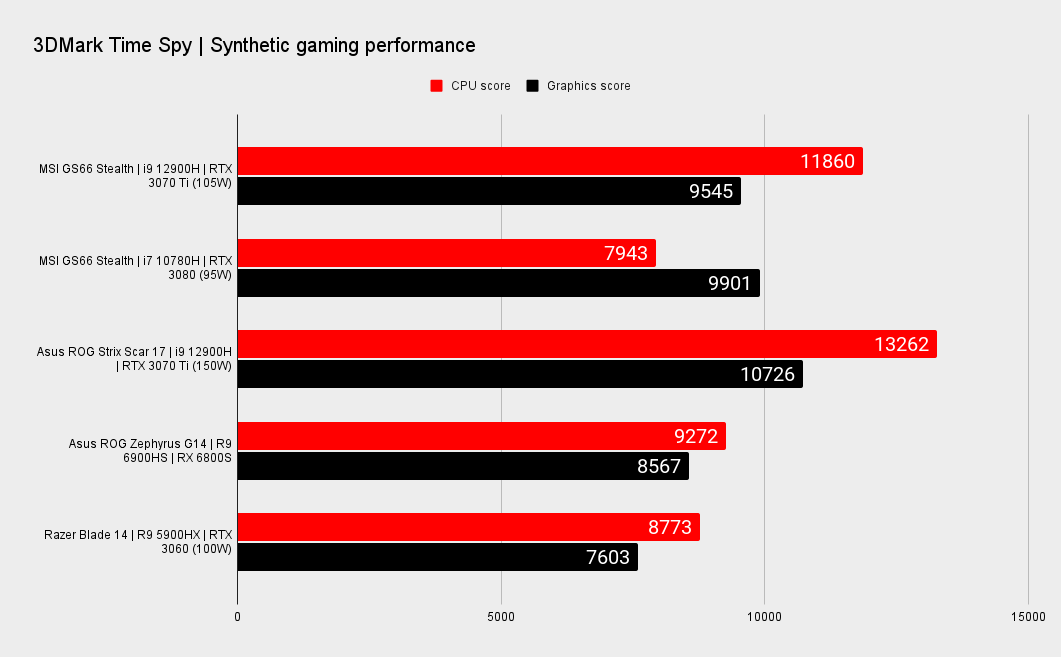
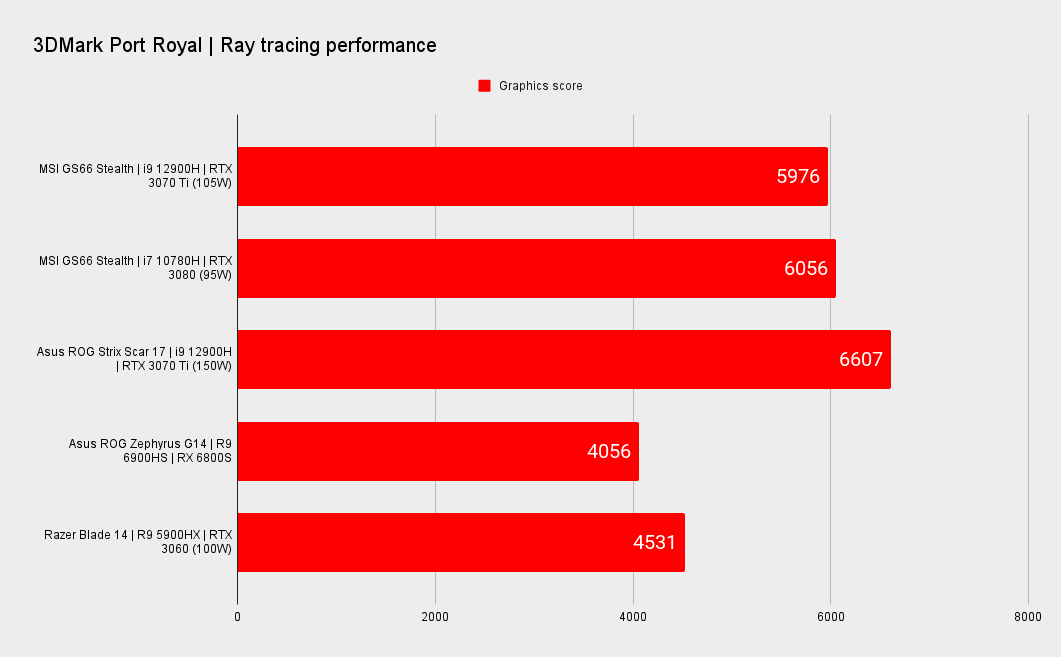
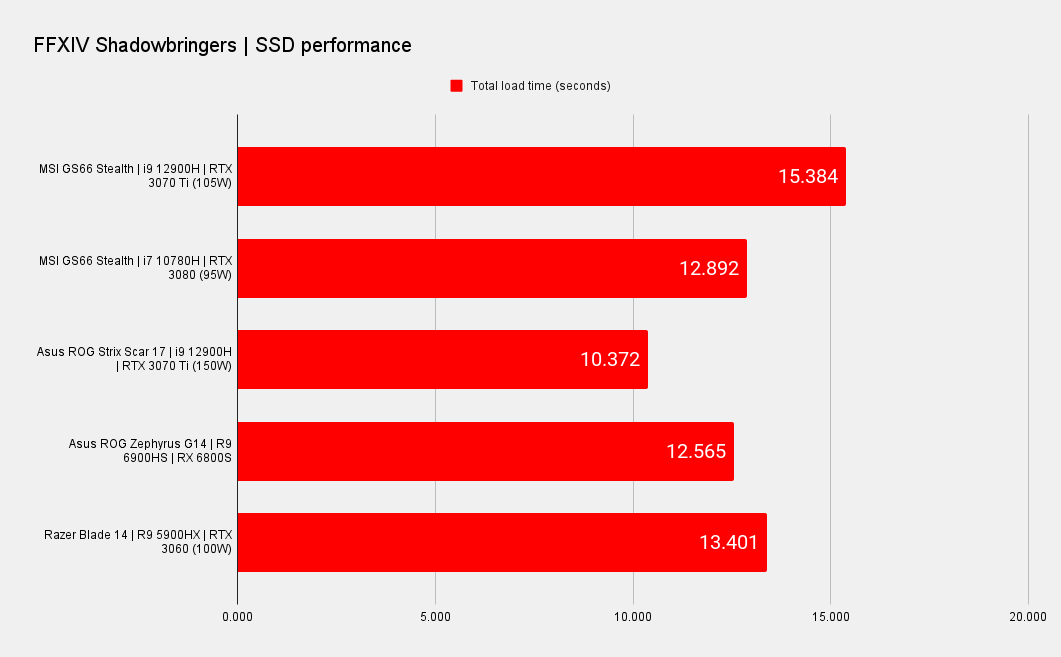
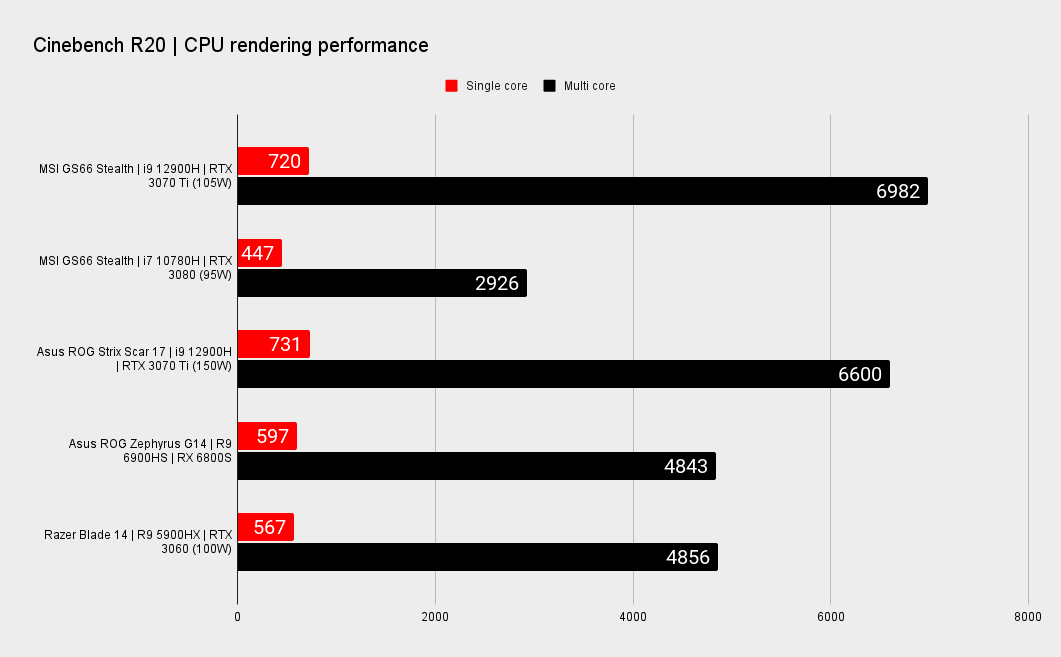
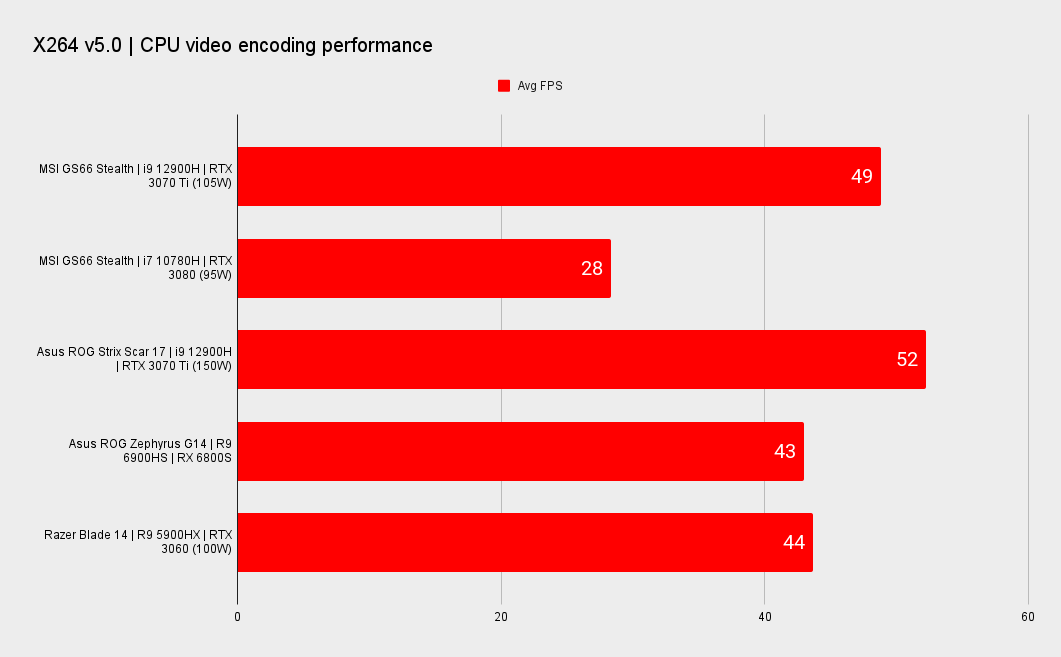
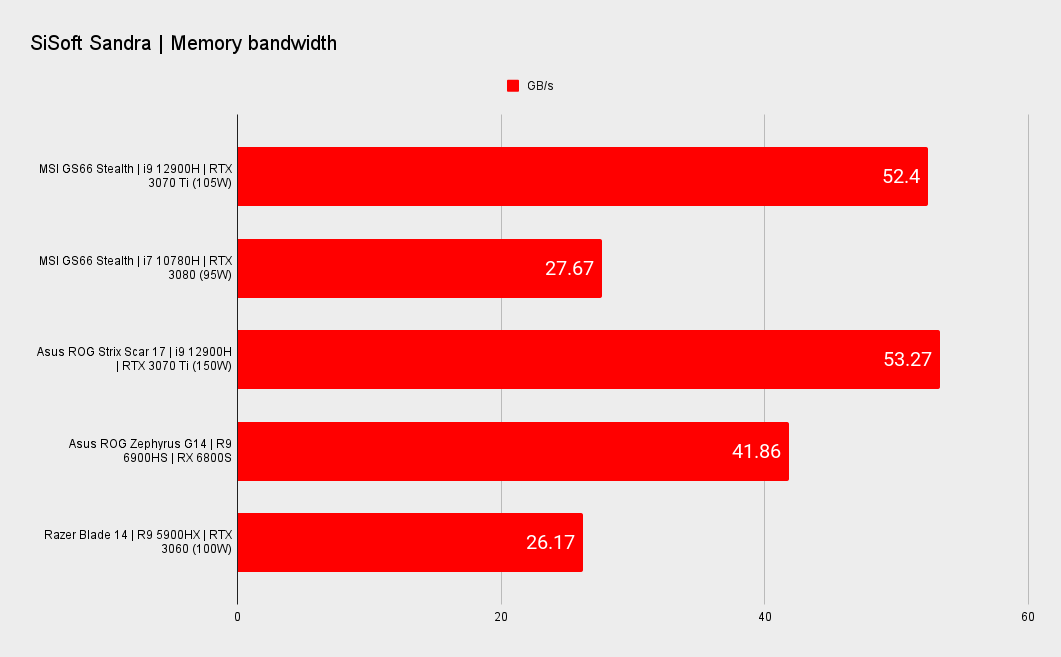
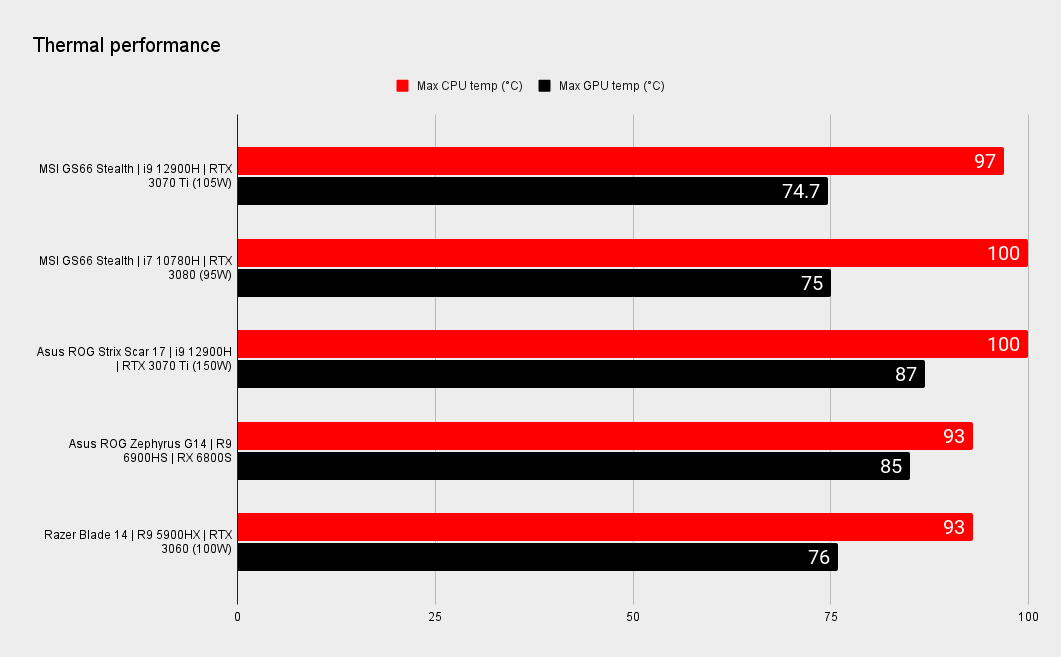
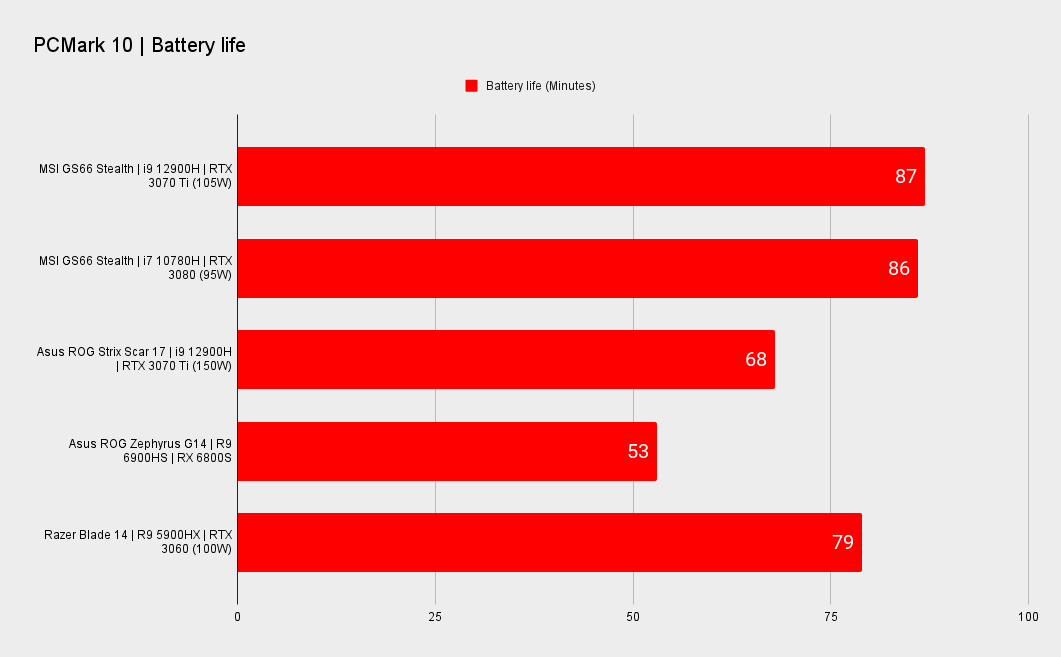
The positive thing is that the latest MSI Stealth GS66 does so with lower peak operating temperatures than either of those machines. Same goes for the processor as the GPU, too. Where the 10th Gen chip, and the Strix's own 12900H CPU, maxed at 100°C, the new GS66 topped out at 97°C.
Obviously, that's hot, but the processing performance you get out of the 12th Gen chips definitely justifies it. The single-core speeds are fantastic, and with those smaller cores coming online to help with multi-threaded workloads it's certainly got some workstation-level power, too.
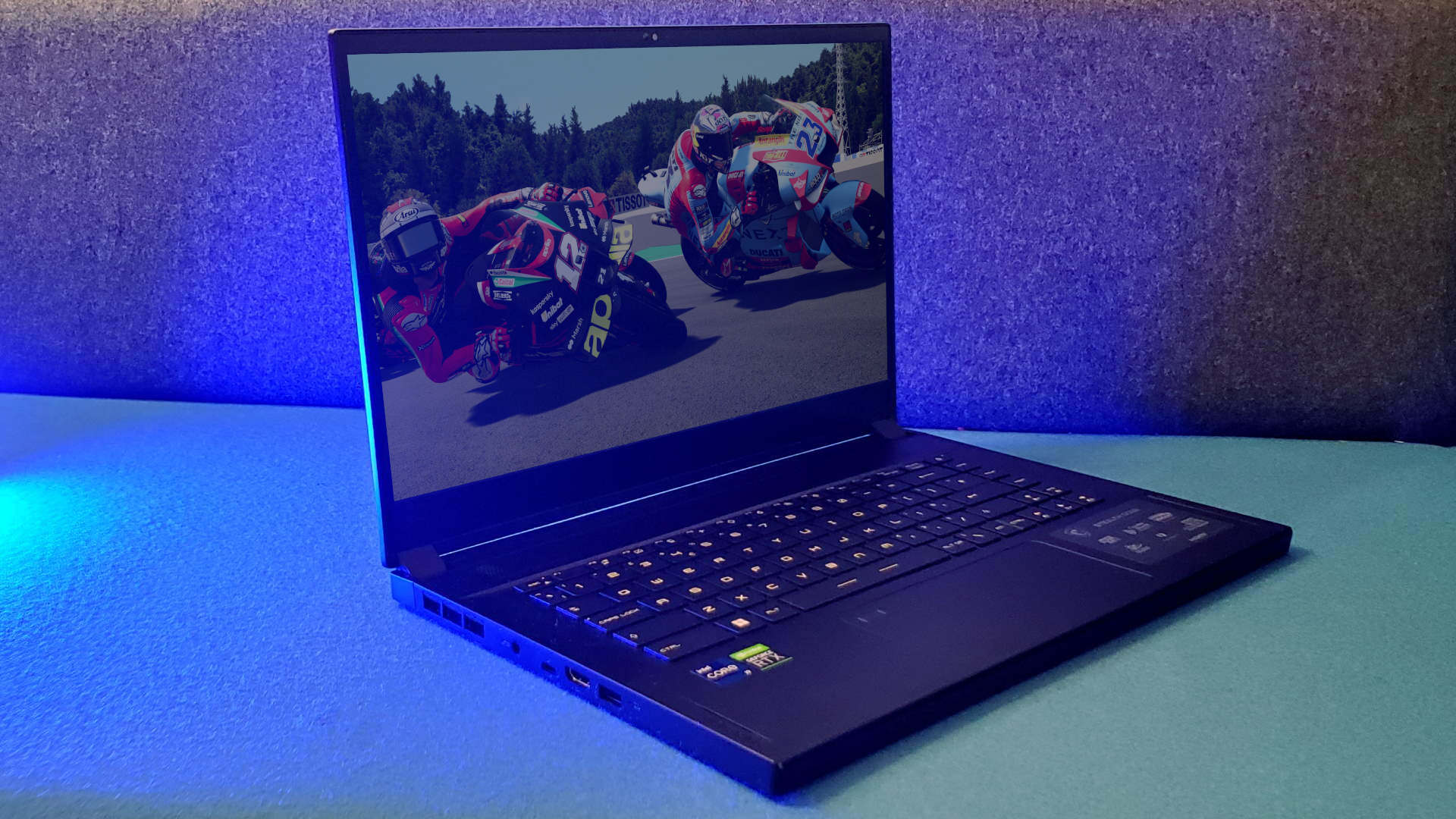

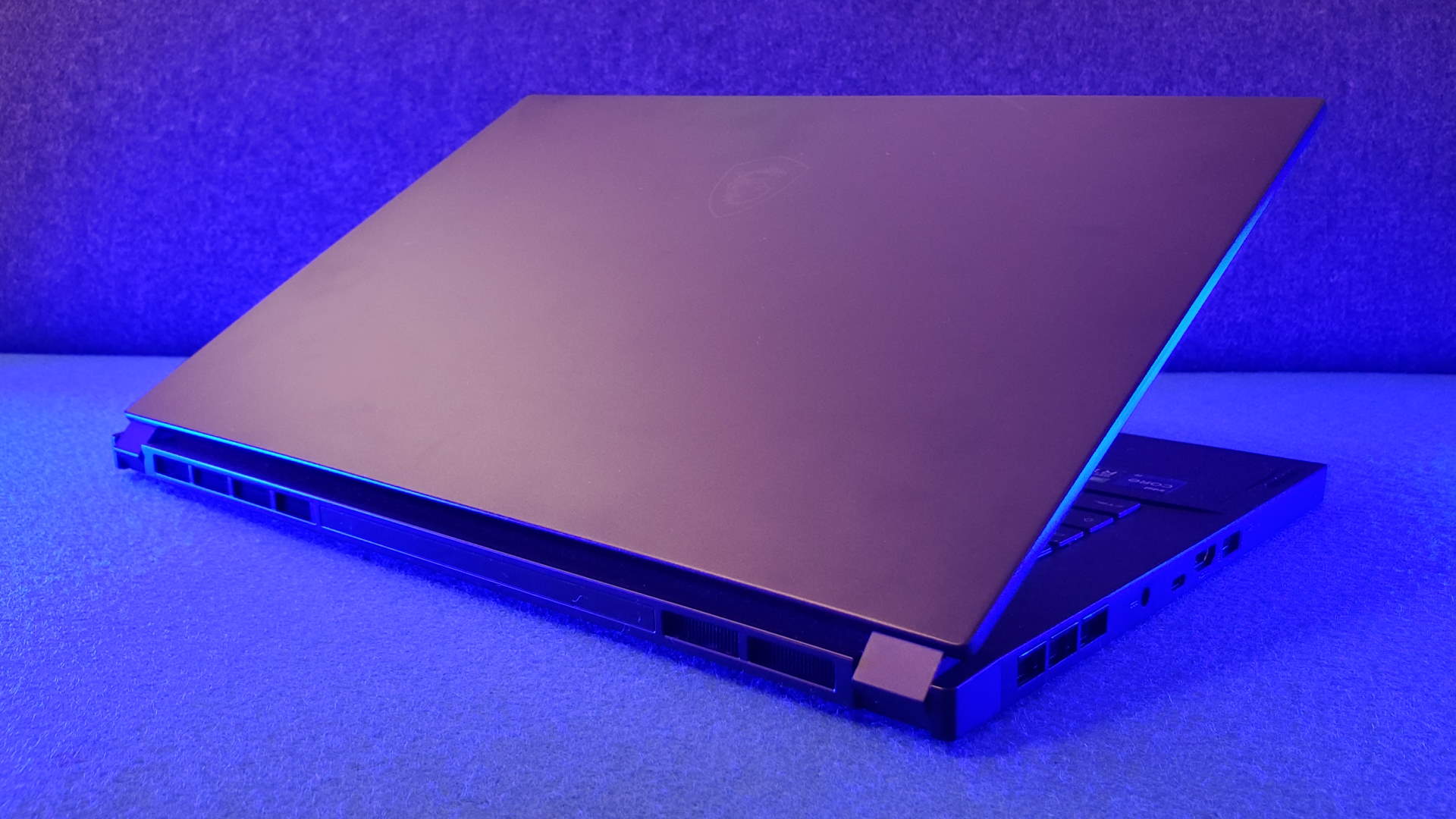
I mean, I am happy about that, but not so much the noise it makes keeping the temps down. Honestly, it's downright offensive; there's no way you could game on this thing in polite company.
My two year-old wandered into the room while I was benchmarking Metro Exodus and loudly exclaimed, "da fuq is that, daddy?!" I'm paraphrasing, but that was his general gist. Hell, even with a good pair of headphones I can still hear its fans thrashing away.
And I'm really struggling to recommend this system because of that. I'll happily forgive the slight give in the keyboard when typing, and the odd ultrawide and rattly trackpad, but the noise is a deal breaker for me. As is the price. When Nvidia announced the RTX 3070 Ti we were promised $1,500 laptops, of which I've seen precisely zero. At twice that price, this MSI Stealth GS66 doesn't do enough to justify its cost.
Sure, it's thin, but with the racket it makes when gaming it certainly ain't stealthy.
A very, er, insistent cooling array certainly wants you to know the Stealth GS66 is doing something. And what it does, it does pretty well, but the pricing and the strange spec choice, combine with the gaming volume to make it a tough machine to love or to recommend.

Dave has been gaming since the days of Zaxxon and Lady Bug on the Colecovision, and code books for the Commodore Vic 20 (Death Race 2000!). He built his first gaming PC at the tender age of 16, and finally finished bug-fixing the Cyrix-based system around a year later. When he dropped it out of the window. He first started writing for Official PlayStation Magazine and Xbox World many decades ago, then moved onto PC Format full-time, then PC Gamer, TechRadar, and T3 among others. Now he's back, writing about the nightmarish graphics card market, CPUs with more cores than sense, gaming laptops hotter than the sun, and SSDs more capacious than a Cybertruck.

